全球私法标准理论的比较法剖析:异同点探索
在全球范围内,私法体系因其历史、文化和社会背景的不同而呈现出显著的多样性。每个国家的私法都有其独特的特点和发展路径,但同时, there are also commonalities and influences that cross national boundaries. This article aims to provide a comparative analysis of the theoretical foundations of private law across various legal systems, with particular emphasis on identifying similarities and differences in their approaches and concepts.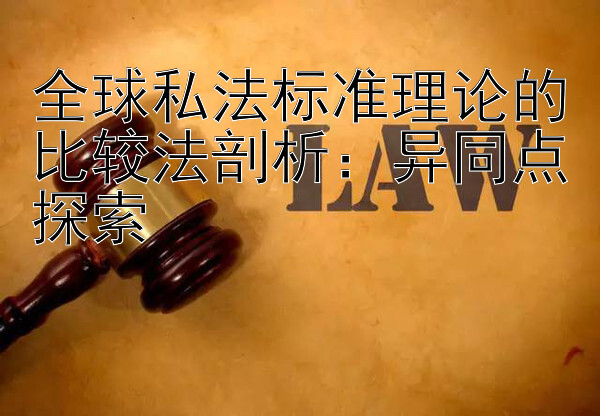
Theory of Global Private Law Standards: Global private law standards refer to the fundamental principles and norms that govern transactions between individuals or entities within a given legal system. These standards shape the way contracts are formed, obligations are fulfilled, property is owned, and disputes are resolved. The theory behind global private law standards suggests that while each jurisdiction has its own set of rules and practices, certain core values underpinning these regulations can be identified and compared.
Common Features Across Legal Systems: Despite the diversity of private law regimes around the world, several universal features can be observed:
- Contractual Freedom: Most jurisdictions recognize the principle of freedom of contract, allowing parties to agree upon the terms and conditions of their agreements freely, subject to public policy considerations and mandatory legal provisions.
- Good Faith: Many civil codes require parties to act in good faith during negotiations, performance, and enforcement of contracts. This principle promotes honesty and fairness in commercial dealings.
- Property Rights: Regardless of the specific form they take (e.g., allodial title, fee simple, etc.), most legal systems acknowledge the importance of protecting ownership rights over tangible and intangible assets.
- Unjust Enrichment: Principles of unjust enrichment serve as a general basis for restitution claims when one party receives a benefit from another without providing adequate compensation.
- Tort Liability: Common elements include negligence, strict liability, and intentional torts, which impose civil liability for harm caused by wrongful acts.
Divergences Among Jurisdictions: However, significant variations exist among different legal traditions:
- Civil Law vs. Common Law Traditions: Civil law systems, prevalent in continental Europe, Latin America, and parts of Africa, tend to have codified laws drafted by legislators and interpreted by judges with less discretion. In contrast, common law systems, found mainly in English-speaking countries, rely heavily on judicial precedent and case law where judges make binding decisions based on prior rulings.
- Germanic Influences vs. Romano-Canonical Roots: Countries influenced by Germanic legal tradition often emphasize social utility and community welfare in their legislation, whereas those rooted in Roman law place more weight on individual autonomy and private ordering.
- Codification vs. Non-codification: While many nations have adopted comprehensive civil codes like the Napoleonic Code or the Swiss Federal Code, others maintain an uncodified body of law where statutes coexist alongside judge-made precedents.
Case Study: Comparative Analysis of Contract Formation Rules in France and England: To illustrate the practical implications of these divergences, consider how contract formation operates differently in two major legal systems:
In France (civil law): - A valid offer requires certainty regarding essential terms such as price and object; otherwise, it may be deemed too vague to constitute an actual offer. - Acceptance must be absolute and unqualified unless otherwise agreed upon by both parties through negotiation or custom. - Silence does not generally constitute acceptance unless there is evidence suggesting otherwise (e.g., conduct indicating assent).
In England (common law): - Offers need only contain sufficient information to enable the offeree to decide whether to accept them—not necessarily every detail about the proposed agreement. - Acceptances do not always need to mirror the exact terms stated in the offer; additional terms might become part of the contract if reasonable notice was provided before acceptance or if dealing with standard industry practice known by both sides. - Silence can sometimes amount to implied consent under certain circumstances where previous course interactions establish customary behavior among businesses involved (i.e., past trade usage).
Conclusion: The study of global private law standards reveals both unity and variety within international jurisprudence. While shared principles ensure some level of coherence worldwide concerning matters affecting personal relationships and business transactions, local adaptations reflect distinct cultural preferences and historical development trajectories unique to each nation's legal heritage. As our increasingly interconnected world continues evolving so too will our understanding of what constitutes effective global governance through harmonized yet diverse regulatory frameworks tailored towards promoting justice equity efficiency transparency accountability accessibilité responsabilité et sécurité juridique pour tous les citoyens du monde entier quelle que soit leur origine géographique ou culturelle.
-

股权转让的限制:私法标准下的 程序解析与法律考量
2024-12-010 人看过股权转让是公司所有权转移的一种重要方式,它涉及到公司的控制权、股权结构以及股东的权益保护等关键问题。在许多国家,包括中国在内,股权转让受到法律的严格监管和限制,以确保交易的公平...
-
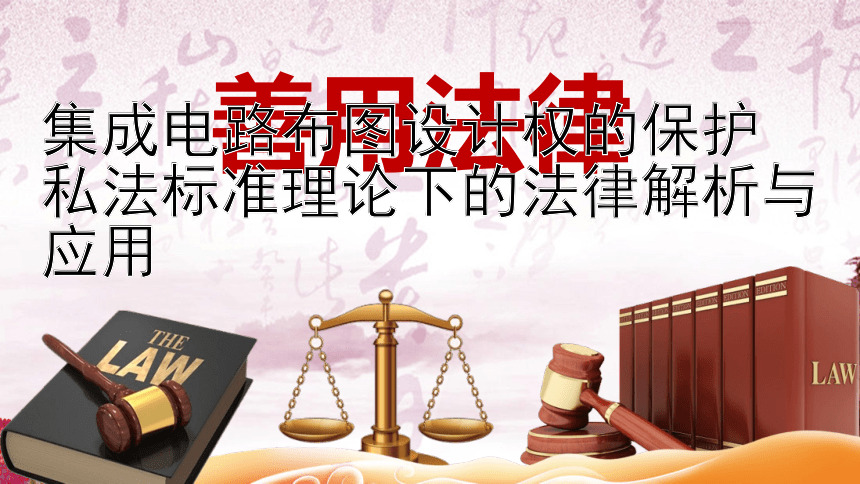
集成电路布图设计权的保护 私法标准理论下的法律解析与应用
2024-12-010 人看过在现代科技发展中,集成电路布图设计(Integrated Circuit Layout Design, IC layout design)作为半导体技术的重要组成部分,其创新和...
-
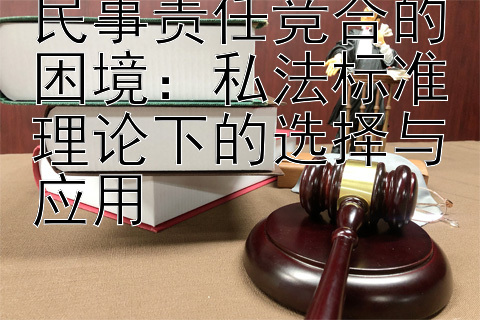
民事责任竞合的困境:私法标准理论下的选择与应用
2024-12-010 人看过在现代社会中,民事责任的竞合是一个复杂而又重要的问题。它涉及到多个法律领域和多种法律责任之间的冲突和协调。当同一行为同时符合两个或多个不同法律的构成要件时,就会产生民事责任竞合...
-

过错责任原则下的举证责任 私法标准理论的深度解析与应用
2024-12-010 人看过在民事侵权行为法中,过错责任原则是一项基本的原则,它决定了当损害发生时,应当由有过错的一方承担相应的法律责任。过错责任原则的核心是要求行为人在实施可能对他人造成伤害的行为时,应...
-
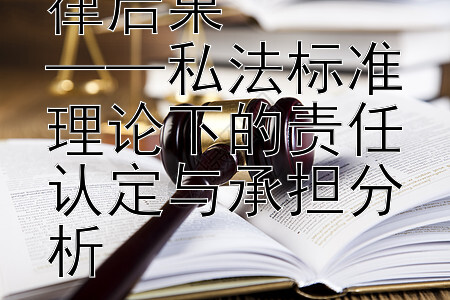
紧急避险的法律后果 ——私法标准理论下的责任认定与承担分析
2024-12-010 人看过在私法标准理论下,紧急避险是一种被广泛承认的自卫行为,它允许人们在面临迫切的危险时采取必要的措施以保护自己或他人的利益。然而,这种行为的合法性及其法律后果取决于多个因素,包括避...
-
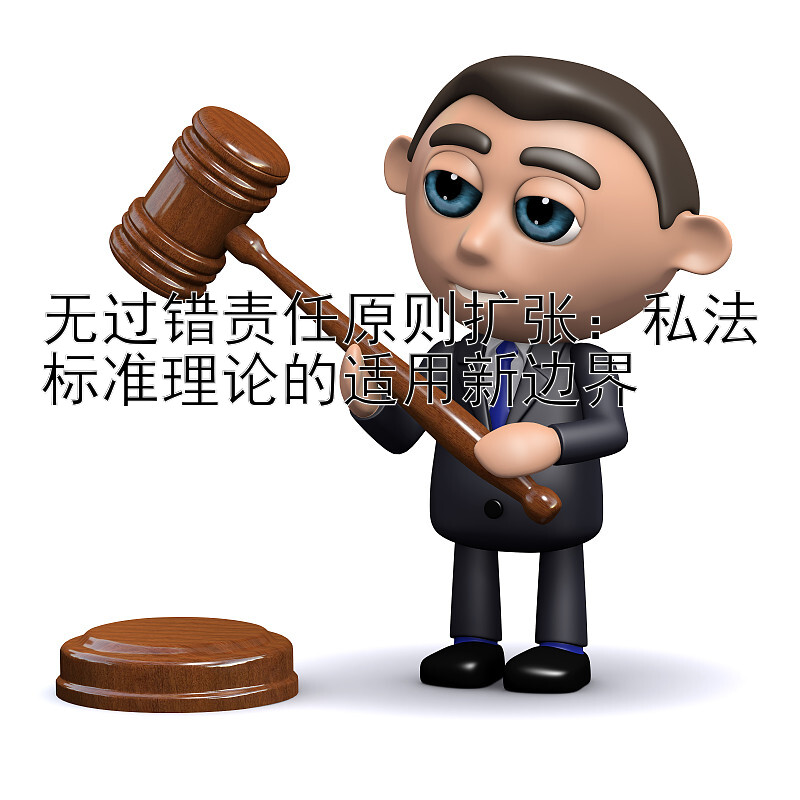
无过错责任原则扩张:私法标准理论的适用新边界
2024-12-010 人看过无过错责任原则是现代侵权责任法中的一个重要概念,它与传统的过错责任原则相对立,后者要求原告证明被告在造成损害时有主观上的过错(如疏忽或故意)才能获得赔偿。而无过错责任原则则意味...
-
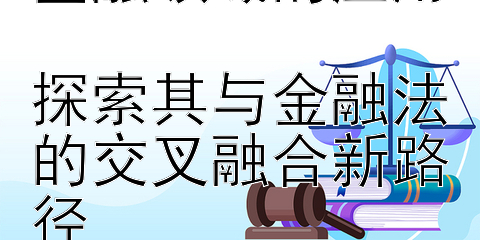
私法标准理论在金融领域的应用 探索其与金融法的交叉融合新路径
2024-12-010 人看过私法标准理论(Private Law Norms Theory)作为一种法学理论框架,强调私人自治和合同自由原则在法律体系中的重要性。该理论认为,私法应当为个体提供一种工具,使...
-

民事责任追偿机制探析 私法标准下的分担原则解读
2024-12-010 人看过民事责任追偿机制探析与私法标准下分担原则的解读在现代社会中,民事责任的承担和追偿是维护公平正义、保护权利人利益的重要法律机制。本文旨在探讨民事责任追偿机制的基本原理以及私法标准...
-

私法标准在构建和谐社会中的作用 助力社会稳定与公平的长效机制
2024-12-010 人看过私法标准在构建和谐社会中的作用——维护社会秩序、促进个体发展与社会进步的基石一、引言在现代法治社会中,公法与私法的划分是法律体系的基本结构之一。其中,私法作为调整平等主体之间财...
-

共同侵权行为的认定 私法标准理论下的责任承担解析
2024-12-010 人看过在现代社会中,共同侵权行为是一个重要的法律概念,它涉及到多个主体对同一损害的共同过错和连带责任。根据《中华人民共和国民法典》第1168条的规定,“二人以上共同实施侵权行为,造成...